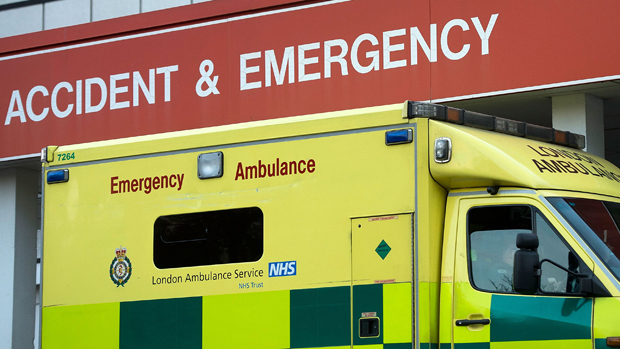A&E waiting times the worst for a decade
Latest quarterly figures show that hospitals in England are failing to meet target time

A free daily email with the biggest news stories of the day – and the best features from TheWeek.com
You are now subscribed
Your newsletter sign-up was successful
Waiting times at accident and emergency departments over the last three months were the worst for ten years.
The latest quarterly figures from NHS England revealed that hospitals in England are failing to meet the target of dealing with 95 per cent of patients within four hours. In the three months to December, only 92.6 per cent of patients were seen within that time, the BBC reports.
Pressure on A&E departments this winter has led several hospitals to activate "major incident" plans.
The Week
Escape your echo chamber. Get the facts behind the news, plus analysis from multiple perspectives.

Sign up for The Week's Free Newsletters
From our morning news briefing to a weekly Good News Newsletter, get the best of The Week delivered directly to your inbox.
From our morning news briefing to a weekly Good News Newsletter, get the best of The Week delivered directly to your inbox.
Gloucester Royal, Cheltenham General Hospital and Scarborough Hospital were among those to activate the emergency measure, which means routine operations and staff training can be postponed to deal with increased patient demand.
The latest weekly figures for the seven days ending on 14 December showed that only 89.8 per cent of people in England's A&E departments were seen in less than four hours. More than 10,000 people were left waiting for between four and 12 hours, while ten people had to wait for more than 12 hours to be seen.
Speaking to ITV's Good Morning Britain, Health Minister Norman Lamb said Britain's ageing population was piling pressure on hospitals.
"We rightly have the toughest targets in the developed world. We are not meeting them," he admitted.
A free daily email with the biggest news stories of the day – and the best features from TheWeek.com
"We are living longer, the pressures of people living with chronic conditions. We hear lots of reports from A&E departments of older people particularly turning up more ill than they have in the past."
Lamb called for a cross-party "fundamental review" on how to sustain the NHS. "It's too important to allow this vital service to be undermined," he said.
Dr Clifford Mann, president of the College of Emergency Medicine, said the pressure on staff was "intolerable", with around 20,000 more patients a week attending A&E than a year ago.
One reason for the increase was that the NHS 111 phone line was directing more people to A&E, he told the BBC Radio 4 Today programme.
"You shouldn't blame the patients when they have been following the signs and the direction they have been given," he added.
-
 What to know before filing your own taxes for the first time
What to know before filing your own taxes for the first timethe explainer Tackle this financial milestone with confidence
-
 The biggest box office flops of the 21st century
The biggest box office flops of the 21st centuryin depth Unnecessary remakes and turgid, expensive CGI-fests highlight this list of these most notorious box-office losers
-
 What are the best investments for beginners?
What are the best investments for beginners?The Explainer Stocks and ETFs and bonds, oh my
-
 A real head scratcher: how scabies returned to the UK
A real head scratcher: how scabies returned to the UKThe Explainer The ‘Victorian-era’ condition is on the rise in the UK, and experts aren’t sure why
-
 How dangerous is the ‘K’ strain super-flu?
How dangerous is the ‘K’ strain super-flu?The Explainer Surge in cases of new variant H3N2 flu in UK and around the world
-
 The ‘menopause gold rush’
The ‘menopause gold rush’Under the Radar Women vulnerable to misinformation and marketing of ‘unregulated’ products
-
 How the care industry came to rely on migrant workers
How the care industry came to rely on migrant workersThe Explainer Government crackdown on recruiting workers abroad risks deepening care sector crisis, industry leaders warn
-
 Could medics' misgivings spell the end of the assisted dying bill?
Could medics' misgivings spell the end of the assisted dying bill?Today's Big Question The Royal College of Psychiatrists has identified 'serious concerns' with the landmark bill – and MPs are taking notice
-
 Washwood Heath: Birmingham's pioneering neighbourhood health service
Washwood Heath: Birmingham's pioneering neighbourhood health serviceIn the Spotlight NHS England chair says there is a 'really good argument this is the model for the future'
-
 The UK's first legal drug consumption room
The UK's first legal drug consumption roomThe Explainer 'Potentially transformative moment in UK drugs policy' as The Thistle opens in Glasgow
-
 How can the UK solve the adult social care crisis?
How can the UK solve the adult social care crisis?Today's Big Question New commission announced to turn our buckling care sector around: yet more delay or finally a way forward?